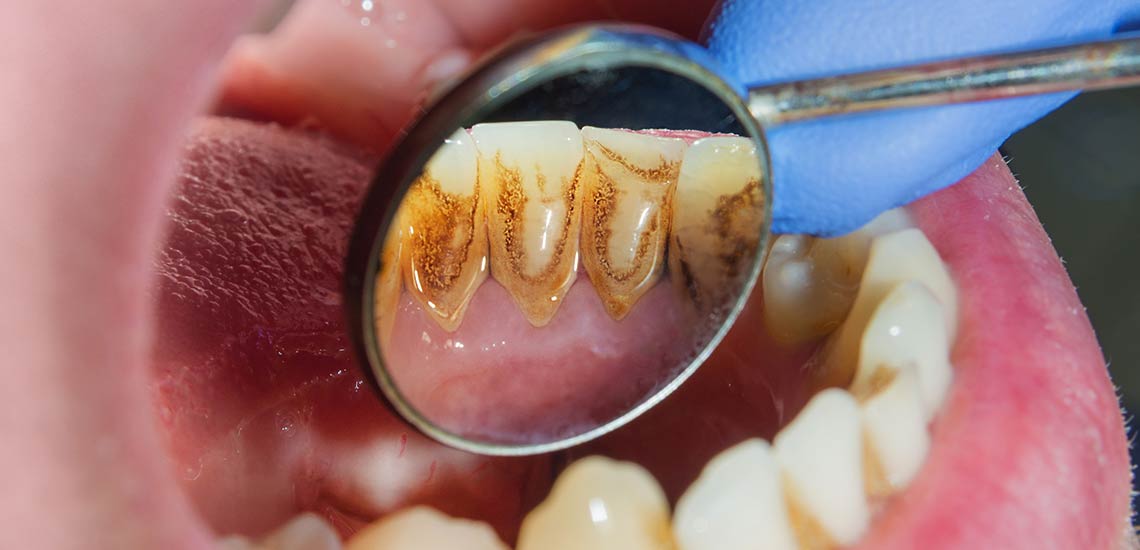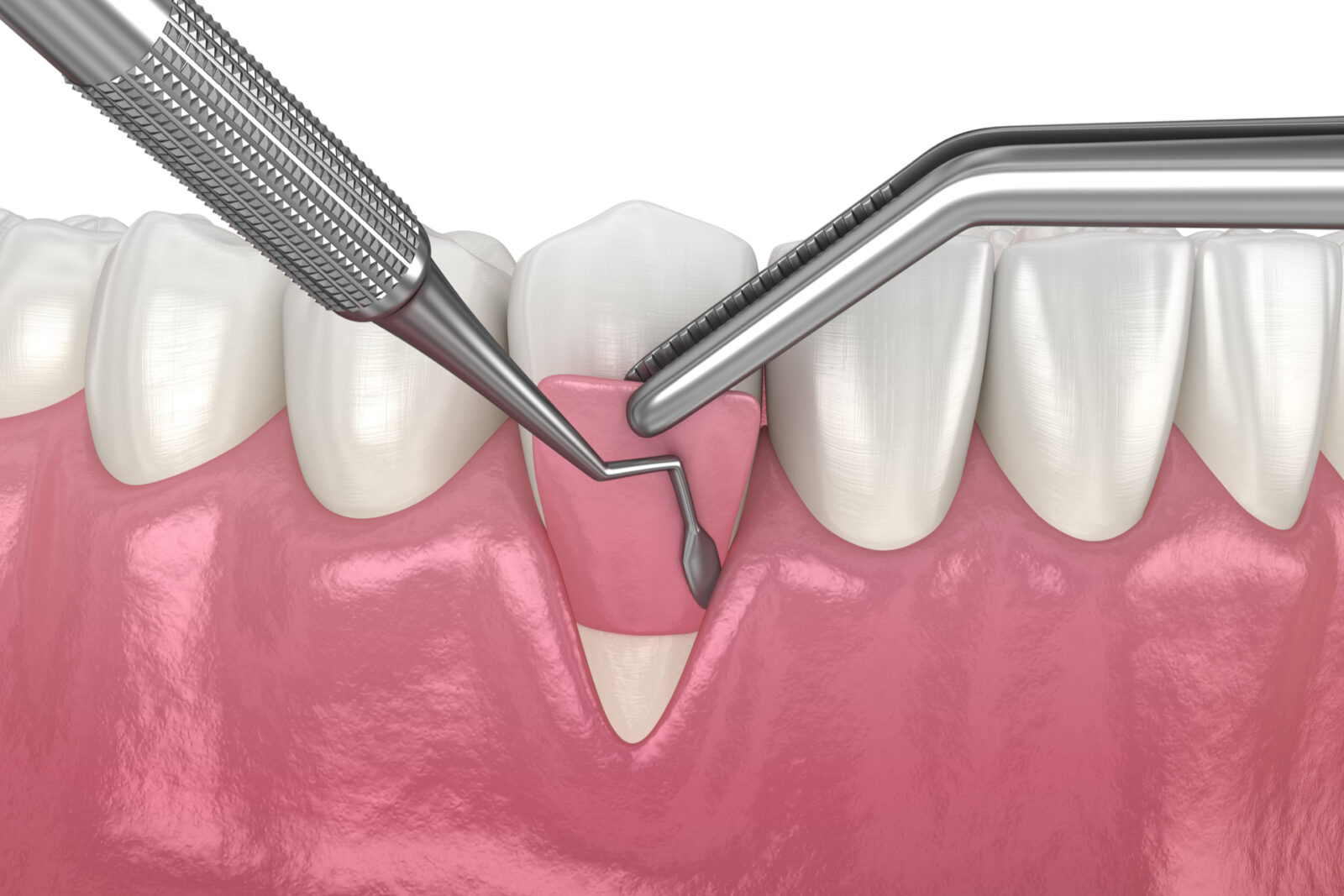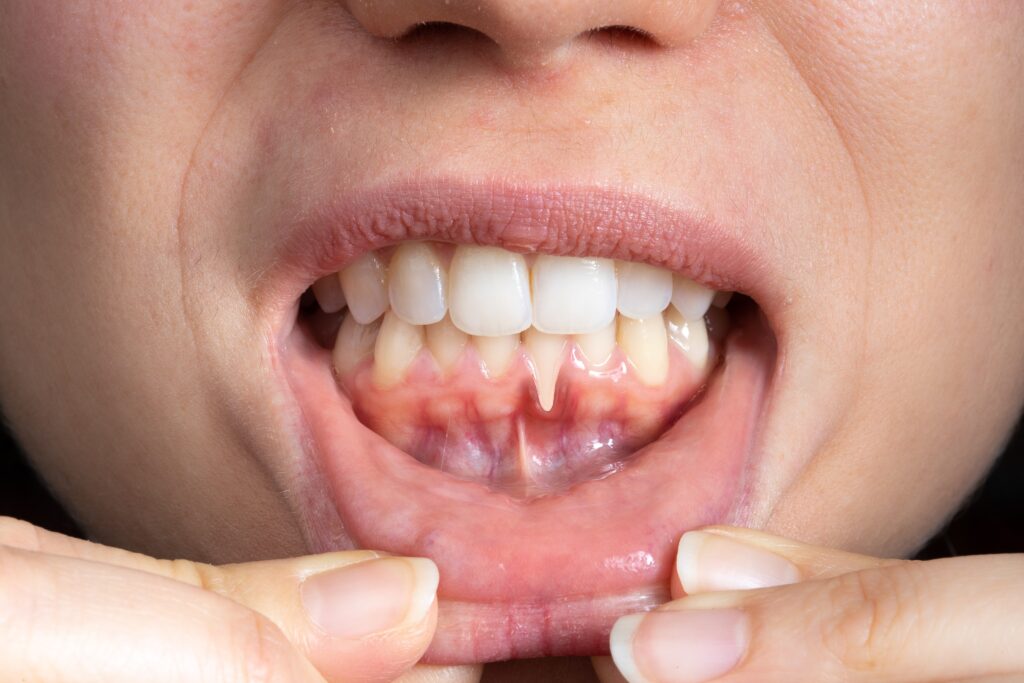Are your gums playing hide and seek with you? Do you notice a subtle change in their appearance, as if they are slowly fading away? If so, then it's time to pay attention to the signs of gum recession. While it may seem like a minor issue, receding gums can lead to serious dental problems if left untreated.

Causes of Gum Recession
Gum recession can be caused by various factors, and it's important to understand these causes to prevent further damage to your gums.
- One common cause is poor oral hygiene. Failing to brush and floss regularly allows plaque buildup along the gumline, which can lead to gum recession over time.
- Another culprit is aggressive brushing. Brushing too hard or using a toothbrush with hard bristles can wear away the gum tissue and cause it to recede. It's important to use a soft-bristled toothbrush and gentle brushing motions.
- Genetics also plays a role in gum recession. Some people may be more predisposed to this condition due to their family history or genetic makeup. If your parents or siblings have experienced gum recession, you may be at higher risk as well.
- Certain habits, such as smoking or tobacco use, can contribute to gum recession as well. These substances introduce harmful chemicals into the mouth that can damage the gums and lead to recession.
- In addition, hormonal changes during pregnancy or menopause can make women more susceptible to gum problems, including recession.
- Other possible causes include teeth grinding (bruxism), misaligned teeth that put excessive pressure on certain areas of the gums, and even some dental treatments like orthodontics if not done properly.
Signs and Symptoms to Look Out For
Keep an eye out for these signs and symptoms:
- Tooth sensitivity: If you suddenly find yourself wincing in pain when consuming hot or cold foods or beverages, it could be a sign of gum recession. Exposed tooth roots can cause increased sensitivity.
- Longer teeth: Have you noticed that your teeth appear longer than before? This could be due to the fact that as your gums recede, more of the tooth structure becomes exposed.
- Gum pocket formation: Healthy gums fit snugly around the teeth without any gaps or spaces. However, as gum recession occurs, pockets may form between the gums and teeth.
- Bleeding gums: Brushing or flossing your teeth should not result in bleeding gums when done correctly. If you notice blood after oral hygiene practices, it might indicate gum recession.
- Changes in gum color and texture: Healthy gums are typically pink and firm in texture. If you observe redness, inflammation, or a spongy feel to your gums, it's worth investigating further.
- Loose teeth: As gum recession progresses, the supporting tissues around the teeth weaken, leading to loose or shifting teeth.
Remember that everyone's experience with gum recession may vary slightly. That said, paying attention to these signs will help determine if professional evaluation from a dentist is necessary.

Treatment Options for Gum Recession
When it comes to treating gum recession, there are several options available, depending on the severity of the condition. The dentist will be able to evaluate your specific situation and recommend the best treatment plan for you.
- One common treatment option is scaling and root planing, also known as deep cleaning. This involves removing plaque and tartar from below the gum line and smoothing out rough spots on the tooth root to prevent further bacteria buildup.
- If gum recession is more severe, a procedure called gum grafting may be necessary. During this surgical procedure, tissue from another part of your mouth or a donor source is used to cover exposed tooth roots and restore gum tissue.
- For less advanced cases of gum recession, the dentist may suggest using a dental tray or splint to protect exposed tooth roots while allowing them to heal. These trays can be custom-made to fit comfortably in your mouth and provide support for the affected gums.
- In some cases, orthodontic treatment like braces or aligners may help correct misaligned teeth that contribute to gum recession by putting excessive pressure on certain areas of the gums.
- Additionally, practicing good oral hygiene habits at home, such as brushing twice a day with a soft-bristled brush and flossing daily, can help prevent further progression of gum recession.
Tips for Preventing Gum Recession
Maintaining good oral hygiene is essential to prevent gum recession and maintain healthy gums. Here are some tips you can follow:
- Brush your teeth properly: Use a soft-bristled toothbrush and brush your teeth gently in circular motions, paying special attention to the gum line. Avoid brushing too aggressively, as it can damage the gums.
- Floss daily: Regular flossing helps remove plaque and food particles from between your teeth and along the gum line, preventing gum disease that can lead to receding gums.
- Use mouthwash: Rinse with an antimicrobial mouthwash after brushing and flossing to kill bacteria that may cause gum inflammation.
- Quit smoking: Smoking weakens the immune system, making it harder for your body to fight off infections like gum disease.
- Eat a balanced diet: A healthy diet rich in vitamins and minerals strengthens the immune system, which plays a crucial role in maintaining healthy gums.
- Limit sugary foods and drinks: Sugary snacks and beverages contribute to plaque buildup on teeth, leading to tooth decay and potential gum problems.
- Schedule regular dental checkups: Regular visits to your dentist allow early detection of any signs of gum disease or other oral health issues before they progress further.
By following these simple tips, you can reduce your risk of developing gum recession while promoting overall oral health.

Frequently Asked Questions
1. Can the gum recession be reversed?
In some cases, early-stage gum recession can be halted or even reversed. However, once the gums have receded significantly, it may not be possible to fully restore them to their original position.
2. What are the long-term effects of gum recession?
If left untreated, gum recession can lead to various oral health issues. These include increased sensitivity to hot and cold foods or beverages, tooth decay due to exposed root surfaces, and an increased risk of developing gum disease.
3. Is there any way to prevent gum recession from occurring?
While it's not always possible to prevent gum recession entirely, there are steps you can take to reduce your risk. Maintaining good oral hygiene practices such as regular brushing and flossing, avoiding tobacco use, and scheduling regular dental checkups can all help promote healthy gums.
If you have concerns about gum recession or any other dental issues, don't hesitate to reach out to our dentist. We are there to help guide you toward optimal oral health. Take control of your oral health today by staying informed and proactive about maintaining healthy gums. Your smile will thank you!
Visit Our Office
Office Hours
- MON - THU8:30 am - 5:00 pm
- FRIBy appointments only
- SAT - SUNClosed
